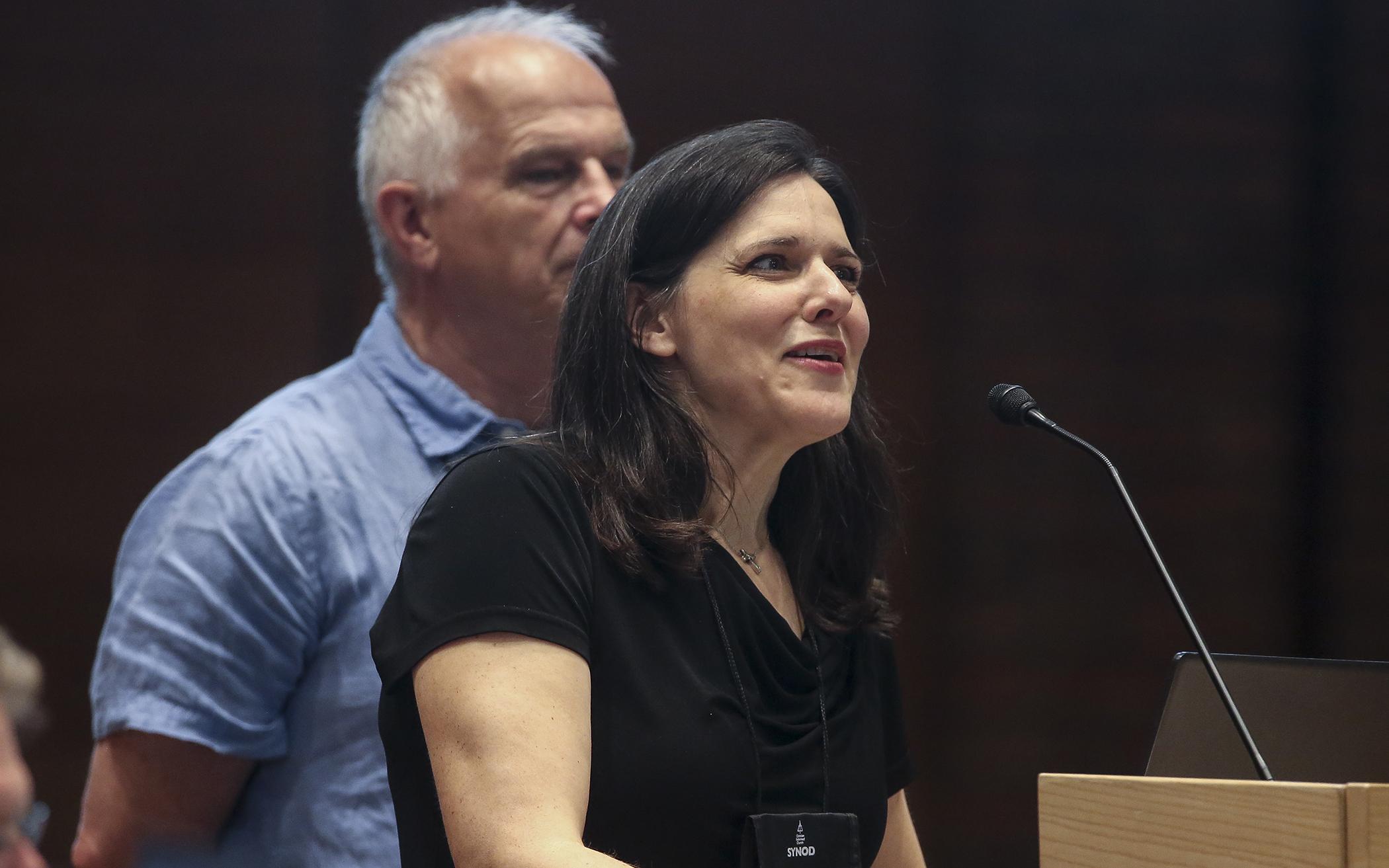As a response to a request seeking a formal way for regional assemblies of the Christian Reformed Church to object to actions of another assembly, Synod 2024 declined to add to its current Church Order supplement, instead noting that by Acts of Synod 2018, “Councils and classes are already free to communicate matters of common concern with one another” (p. 516).
Synod is the annual general assembly of the Christian Reformed Church in North America. It is meeting June 14-20 in Grand Rapids, Mich.
Overture 74 had asked for an addition to the supplement for Church Order articles 82-84 that would read, “To carry out our mutual, covenanted responsibility, any narrower assembly may make a formal appeal to a broader assembly regarding the action or inaction of another assembly when an officebearer is deemed to be in violation of the Covenant for Officebearers. Such an appeal may proceed only after the perceived violation has been communicated to the council and classis of the officebearer. Synod shall be the final body of appeal in all matters.”
The committee considering the request said the suggested addition would be contrary to Church Order Article 30-a, which defines a process for making appeals to the assembly next in order. It referenced a similar finding by Synod 2018.
Lora Copley, Classis Northcentral Iowa, reporting for the committee said, one of their concerns in making their recommendation was to avoid a “litigious context” where “different classes would be directly appealing against other classes.”
Copley said, “We found, as a committee, that the typical protocol and procedures that our denomination has operated by, from one classis to another, has been overtures—and we felt that was helpful in the past and will be helpful in the future.”
Steve Bussis, Classis Yellowstone, was against turning down the request for a supplemental addition, saying it “doesn’t seem to seek to create a ‘litigious environment.’ Especially because it says an appeal should be received only after the communication was received (by the council and the classis).”
Rod Galindo, Classis Grandville, also spoke against rejecting the addition. “I keep hearing from several brothers and sisters about having dialogue—the need for communication—and we’re living in a time where there’s low trust and a need for truth.” He continued, “I believe we’re in a time where we need more communication and dialogue with one another (so) that we may come to an agreement with truth.”
Michael Borgert, Classis Ontario Southwest, was in favor saying it would be “redundant” to adopt the overture. “What the overture asks for is essentially communication and dialogue, and (that) it is already provided in our Church Order.”
Ken Douma, Classis Alberta North, agreed with rejecting the addition. “My fear is that in our current environment, if we don’t accept this (the committee’s recommendation), we are (would be) putting in practice the means of which one classis can almost supervise or oversee another classis.”
The recommendation to not accede to the overture was approved with what president Derek Buikema described as “a strong majority.” Three negative votes were recorded.
Synod 2024 is meeting June 14-20 at Calvin University in Grand Rapids, Mich. Find daily coverage from The Banner news team at thebanner.org/synod. Visit crcna.org/synod for the synod schedule, webcast, recordings, photos, committee reports, and liveblog. Synod is the annual general assembly of the Christian Reformed Church.
About the Author
Kristen Parker is a freelance writer. She has a passion for words and creativity. Kristen and her husband Chris, enjoy board games and thrift shopping. They attend Stratford CRC in Stratford, Ont.









